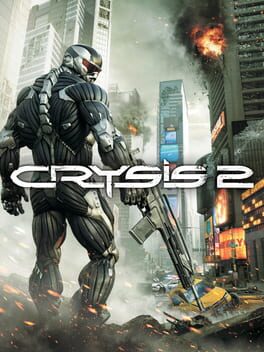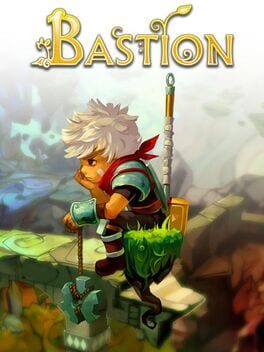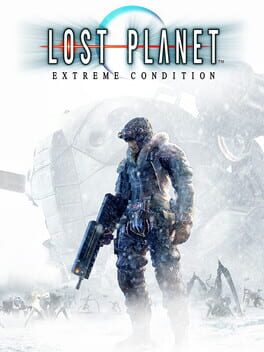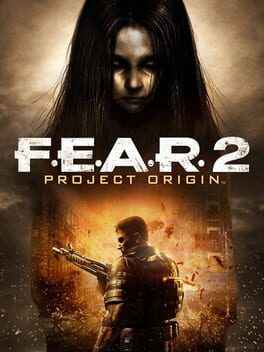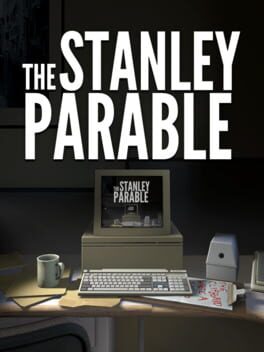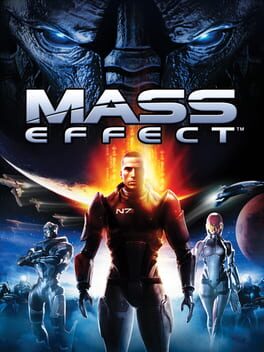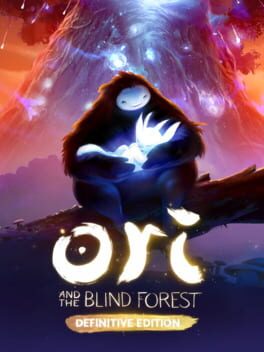Malaz
15 reviews liked by Malaz
Crysis 2
2011
I have always read from discussions and reviews of this game how badly the "console-ization" of the gameplay detracted from it but had never experienced the game myself. Turns out, people were correct for criticizing this game at the time. I can't imagine what the super fans of the first game felt when they finally got their hands on this.
Crysis 2 is set a couple of years after the first game ends and continues with the big question "what's up with all these alien guys?". Turns out they are all over the world! I'm going to be honest, I wanted to comment on the story more, but I can barely remember anything as I was so bored by the end.
Now look, there is nothing wrong with linear games, I don't have a strong preference one way or another. If a game does linear or open well, I'll like it. But think a bit about what you actually do here: You are fighting two sets of enemies for the entire game, CELL soldiers (humans) and alien guys. These two sets have a couple of notable enemy types, but most of the mooks you gun down are just hitscan grunts that punish you for peeking out of cover while you lay rounds into them. There is just not a lot to this; some of the suit powers return from the first game (Armor, "Speed", and Cloak), but neither the arenas you fight in, nor the guys you shoot demand anything special from you. You CAN cloak and sneak up on one dude, take them out, then sneak over to another guy and so on, but then you're just taking way more time than is necessary to clear out areas. Cloaking, ambushes and hit and run tactics just don't feel worth it here, when in the first game you have a lot of foliage and terrain to break line of sight and re-engage. You could also go guns blazing using armor mode in the first game, but you were slow and exposed and enemies were generally smarter. In Crysis 2, armor mode has no real downside since you have to plow through enemies all the time anyway. Situations do not depend on much beside what weapons you have with you and even then, it's only a choice between short- and long range.
The gameplay just doesn't ask much of you. In my opinion, tons of first-person shooters from this generation and the next suffered from this thing where devs had to design encounters in linear games in a way that most people can get through them eventually, accounting for all kinds of skill and experience levels. The principle is completely fine, of course, I don't care for keeping people from finishing a game and letting only skilled people beat it, but I suspect that most people that played this casually will not be able to recall most encounters since you most likely just gunned everything down quick. There is a fine balance to encounter design where you want to streamline things so people can enjoy themselves, but surely you need to throw people some curve balls to make people try new approaches and engage with all of the elements of your combat system.
Still, I would not call the game "bad", it’s just very disappointing to me. The game does have very strong art direction! Maybe a little too gritty, but I liked the whole "disaster movie" thing they went with, even though I prefer the pretty landscapes and global illumination tech of the first game. Oh and the sound direction is really cool. I liked that a lot, actually. It's nice as hell.
I finished it in around 8 hours on hard mode and I can't say I recommend it. I tried to like it, man. I really tried.
Crysis 2 is set a couple of years after the first game ends and continues with the big question "what's up with all these alien guys?". Turns out they are all over the world! I'm going to be honest, I wanted to comment on the story more, but I can barely remember anything as I was so bored by the end.
Now look, there is nothing wrong with linear games, I don't have a strong preference one way or another. If a game does linear or open well, I'll like it. But think a bit about what you actually do here: You are fighting two sets of enemies for the entire game, CELL soldiers (humans) and alien guys. These two sets have a couple of notable enemy types, but most of the mooks you gun down are just hitscan grunts that punish you for peeking out of cover while you lay rounds into them. There is just not a lot to this; some of the suit powers return from the first game (Armor, "Speed", and Cloak), but neither the arenas you fight in, nor the guys you shoot demand anything special from you. You CAN cloak and sneak up on one dude, take them out, then sneak over to another guy and so on, but then you're just taking way more time than is necessary to clear out areas. Cloaking, ambushes and hit and run tactics just don't feel worth it here, when in the first game you have a lot of foliage and terrain to break line of sight and re-engage. You could also go guns blazing using armor mode in the first game, but you were slow and exposed and enemies were generally smarter. In Crysis 2, armor mode has no real downside since you have to plow through enemies all the time anyway. Situations do not depend on much beside what weapons you have with you and even then, it's only a choice between short- and long range.
The gameplay just doesn't ask much of you. In my opinion, tons of first-person shooters from this generation and the next suffered from this thing where devs had to design encounters in linear games in a way that most people can get through them eventually, accounting for all kinds of skill and experience levels. The principle is completely fine, of course, I don't care for keeping people from finishing a game and letting only skilled people beat it, but I suspect that most people that played this casually will not be able to recall most encounters since you most likely just gunned everything down quick. There is a fine balance to encounter design where you want to streamline things so people can enjoy themselves, but surely you need to throw people some curve balls to make people try new approaches and engage with all of the elements of your combat system.
Still, I would not call the game "bad", it’s just very disappointing to me. The game does have very strong art direction! Maybe a little too gritty, but I liked the whole "disaster movie" thing they went with, even though I prefer the pretty landscapes and global illumination tech of the first game. Oh and the sound direction is really cool. I liked that a lot, actually. It's nice as hell.
I finished it in around 8 hours on hard mode and I can't say I recommend it. I tried to like it, man. I really tried.
Bastion
2011
Bastion
2011
You boot up Bastion and it's immediately off to a good start. As you get to grips with the very responsive combat every action of yours is narrated of by some voice in the sky, hitting you with constant banger one-liners as you start getting the hang of it. That narrator is perhaps the most famous part of Bastion, and rightfully so. I've always had a weakness to narration in gaming and this one's among the best. With a smooth deep voice halfway between a gruff cowboy and a grizzled noir character and tons of great lines, Rucks is a character in the story and all of the story is experienced and framed through that narration.
The first few levels keep hitting you with mechanics at just the right pace. There's a hell of a lot of weapons, each customizable, and they string together into pretty fun combat scenarios. Granted, there is little more than that combat to the gameplay, and the second half of the game does end up lagging a bit because of that, but I never found that to be an issue. There's a lot of depth to that customization and I generally appreciate any game that can actually convince me to alternate between loadouts rather than maining one for the whole game. Every weapon has its own use, though some of the ranged ones end up a bit outclassed later on, and each of them has its own minigame where you can get a high score for rewards. There's a shield too, and it can parry. I love me a game with a good parry.
Even just on the gameplay and presentation front, Bastion does a great job.
-
STORY DISCUSSION, SPOILERS AHEAD
-
Bastion addresses difficult themes, with war, its aftermath, and that aftermath's effect on the people of both sides, being one of the main concerns of the story, so inevitably there's going to be disagreements over how well it achieves this. Personally, I think it does a great job. Each of the characters has been hurt by the consequences of the war, and Rucks in particular is so deeply tied to it that through most of the game it's difficult for him to be objective or honest, and it's that dishonesty that causes the conflict with the Ura, but you can see him slowly begin to accept the reality of Caelondia's actions as the game progresses.
I think some people fail to notice that character development and think the game is excusing his past actions in some way, but it's just that Bastion's story is also about trying to make the best of an awful, awful situation. Ultimately, it's not really even clear if anything you can do is for the best, but you need to try anyways, rather than just sit there and wait for the Calamity to take you.
Usually themes of still trying no matter what, even in the face of impossible odds fail to have much of an effect on me. Either there's a good ending, retroactively destroying the threat of those impossible odds, or the overall picture is so nihilistic that I just don't see the point for anyone to fight on.
Bastion was maybe the first story of that sort to actually have an impact, for me. I think it's because it actually allows you to choose how to shape the world around you at the very end, and making that a serious, permanent choice (until the next playthrough, anyways). Changing the world is scary, especially when you're dealing with forces you don't understand. You're not fighting for a better world, you're fighting for the possibility of one, and you choose what kind of possibility you actually want to choose. And that to me is much more compelling.
The first few levels keep hitting you with mechanics at just the right pace. There's a hell of a lot of weapons, each customizable, and they string together into pretty fun combat scenarios. Granted, there is little more than that combat to the gameplay, and the second half of the game does end up lagging a bit because of that, but I never found that to be an issue. There's a lot of depth to that customization and I generally appreciate any game that can actually convince me to alternate between loadouts rather than maining one for the whole game. Every weapon has its own use, though some of the ranged ones end up a bit outclassed later on, and each of them has its own minigame where you can get a high score for rewards. There's a shield too, and it can parry. I love me a game with a good parry.
Even just on the gameplay and presentation front, Bastion does a great job.
-
STORY DISCUSSION, SPOILERS AHEAD
-
Bastion addresses difficult themes, with war, its aftermath, and that aftermath's effect on the people of both sides, being one of the main concerns of the story, so inevitably there's going to be disagreements over how well it achieves this. Personally, I think it does a great job. Each of the characters has been hurt by the consequences of the war, and Rucks in particular is so deeply tied to it that through most of the game it's difficult for him to be objective or honest, and it's that dishonesty that causes the conflict with the Ura, but you can see him slowly begin to accept the reality of Caelondia's actions as the game progresses.
I think some people fail to notice that character development and think the game is excusing his past actions in some way, but it's just that Bastion's story is also about trying to make the best of an awful, awful situation. Ultimately, it's not really even clear if anything you can do is for the best, but you need to try anyways, rather than just sit there and wait for the Calamity to take you.
Usually themes of still trying no matter what, even in the face of impossible odds fail to have much of an effect on me. Either there's a good ending, retroactively destroying the threat of those impossible odds, or the overall picture is so nihilistic that I just don't see the point for anyone to fight on.
Bastion was maybe the first story of that sort to actually have an impact, for me. I think it's because it actually allows you to choose how to shape the world around you at the very end, and making that a serious, permanent choice (until the next playthrough, anyways). Changing the world is scary, especially when you're dealing with forces you don't understand. You're not fighting for a better world, you're fighting for the possibility of one, and you choose what kind of possibility you actually want to choose. And that to me is much more compelling.
The Stanley Parable
2013
Mass Effect
2007
Visually very appealing and looks like a children's game, but it's definitely not. The platforming can be brutally hard in certain places and it's more frustrating than fun. I never got comfortable with the "floaty" controls of Ori, which made some of the pin point precision timing on jumps incredible hard. The game is also quite hard on the mechanical side of the controller, since Ori has a lot of moves, which sometimes needs to be chained together very rapidly in order to progress. I wanted to love this game, but when the credits rolled I was just glad to be finished with it.
It is critical for games like this to have extraordinarily tight controls. This one doesn't. The story starts out charming and it's nice to look at, but I didn't really enjoy the act of playing the game. I died numerous times due to imprecise jumping, and it's not just something you can say "git gud" to. Celeste is a great example of a game getting it right. This one, for me, is an example of a game getting it wrong.
